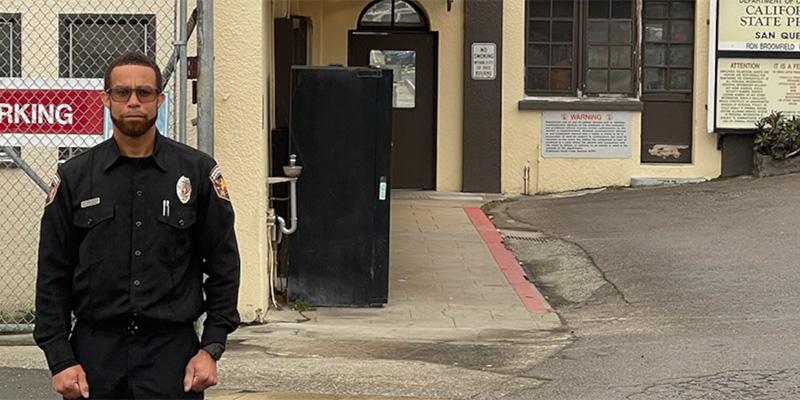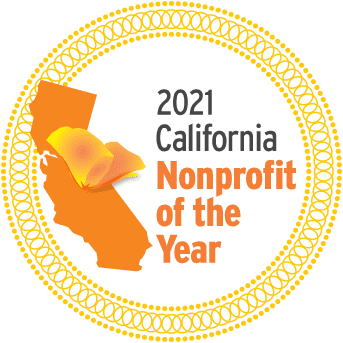Purple, green, and blue lights can be seen shining from the Catholic Chapel in San Quentin, and there’s only standing room to enter.
The celebratory sounds of clapping, yelling, laughter and cries bellow through the night air as more people push themselves through crowded bodies blocking the double doors of the Chapel hall.
To understand where the name OpenLine comes from, first, you need to understand two important events at San Quentin: Open Line and Open Mic.
You may know OpenLine as a journal of student literature published by Mount Tamalpais College, including both print editions and the online version you’re reading now. The editors and students chose the name OpenLine back in 2008, in reference to “a window of time during which general population inmates at San Quentin may meet with their counselors or go to the canteen without a pass or prior permission.”
In other words, the word Open Line means having unimpeded access to privileges simultaneously as others. The name has been around the California prison system for quite some time.
As former student Chuck Hopple said, the content inside of these journals represents “Access to information, or conversation, which not only allows the hearing but also the ability to be heard.”
Most of OpenLine’s content, artwork, and literature was performed on a stage during an event called Open Mic. Mount Tamalpais College hosts the annual tradition of Open Mic which is usually held after Christmas. Open Mic events are creativity meeting ambition.
Scott McKinstry and Bruce Fowlers’ artwork hangs on the Chapel walls, Smithonianworthy. David Jassy would sometimes perform his songs “Freedom” or “If These Walls Could Talk” at Open Mic events.
Former student Curtis H. Roberts said, “OpenLine to me is like an open mic night where anybody could get up and sing or do whatever.”
The line to get up on stage would grow rapidly as the crowd eagerly awaits what is always a surprise, not knowing what to expect from the incarcerated community.
A sharp gasp turns heads, and an echo of laughter erupts through the crowd, but eventually, the quiet crack of a voice brings a somber silence and tears trickling.
Emound Johnson said “It’s been a long time since I’ve cried! I have kept all the pain inside” in his poem Stubborn Eyes of Mine.
Some men express emotions through performances as they scream, kick, yell, and punch at the air. Others crack jokes on stage to hide their something behind laughter.
Simon Woodard, an on-site program coordinator for Mount Tamalpais College (then called the Prison University Project) between 2013-2016, wrote the introduction in 2016 OpenLine: “Open Mic is a celebration of rich eclecticism and mutual support that strengthens the vibrant learning community at San Quentin.”
One of eighteen individuals who performed at the Open Mic on December 26th, 2014, Richard Lathan wrote, “I chose to perform this at open mic because I can feel the pain of losing someone that I love so dearly.”
Richard was referring to the children of Sandy Hook Elementary School in this poem called, “Ascending to Heaven.”
When traumatic events occur like Sandy Hook and Robb Elementary School, how should one grieve in isolation where there is no emotional support even from our own society?
Richard, like others, is physically and not emotionally disconnected from what is considered the free world.
OpenLine and Open Mic provide a space to connect and grieve with a community of open-minded people with infinite possibilities who refuse to be confined.











